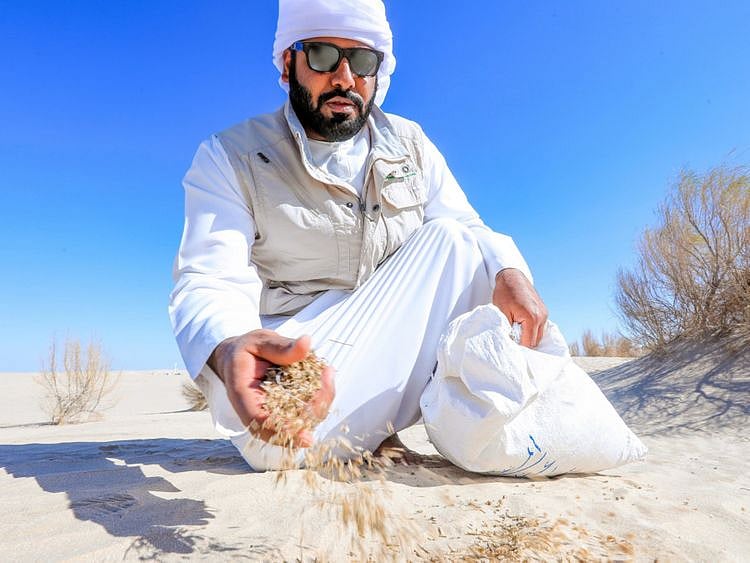Abu Dhabi to scatter 1m seeds to spur green drive
Environment Agency–Abu Dhabi plans to rehabilitate natural habitats

Abu Dhabi: More than 1 million seeds of native wild plant species will be scattered across Abu Dhabi by the Environment Agency – Abu Dhabi (EAD) across four different locations.
The move comes as part of the EAD’s aim to rehabilitate natural habitats, support seed stock in different types of soils and enhance the plant cover of selected wild plant species in their natural habitat.
The seeds will be scattered in sites without vegetation, as well as in areas containing some plants to provide the right habitat that can protect plant species when they are germinating. Seeds will be placed in shallow trenches and a careful evaluation of the area will take place before and after sowing to measure its impact and the increase in vegetation in the area.
The EAD will scatter filtered seeds, as well as seeds still within the fruit to help preserve them for longer periods. The fruits also play an important role in absorbing moisture from the ground and the atmosphere, which increases the chances of germination for different plants.
The seeds will be scattered in 100 plots in Al Ghada Protected Area, Al Houbara Protected Area in Al Dhafra Region and the Arabian Oryx Protected Area.
Seeds will be also scattered along Wadi Turbat in the Jabal Hafit National Park in Al Ain, which is 5km in length.
The plant species include Ghaf, Acacia (Samar), White saxaul (Ghadha), Cornulaca (Al Hath), Bristle grass (Al Sabt), Convolvulus (Hab Al Risha), Broom bush (Al Markh), Wild drumstick (Shu’a), and others
Dr Shaikha Salem Al Dhaheri, EAD’s secretary-general, said: “Abu Dhabi has 60 per cent of the UAE’s total wild plant species and we are committed to protecting these plants in their natural habitats through the ‘Shaikh Zayed Protected Areas Network’. This network includes 13 terrestrial reserves, such as Jabal Hafit National Park and Houbara Protected Area, where many types of endangered plants can be found.”
She added: “We would also urge local authorities and private companies who are collecting seeds to co-ordinate with the EAD.
"Lack of co-ordination risks putting pressure on the targeted species, destroying the plants’ habitat during collection operations and not leaving any stock, which plants can use to perform the natural renewal process for themselves. People who do not obtain permission from the agency before collecting seeds risk being held legally accountable.”
Sign up for the Daily Briefing
Get the latest news and updates straight to your inbox
Network Links
GN StoreDownload our app
© Al Nisr Publishing LLC 2026. All rights reserved.